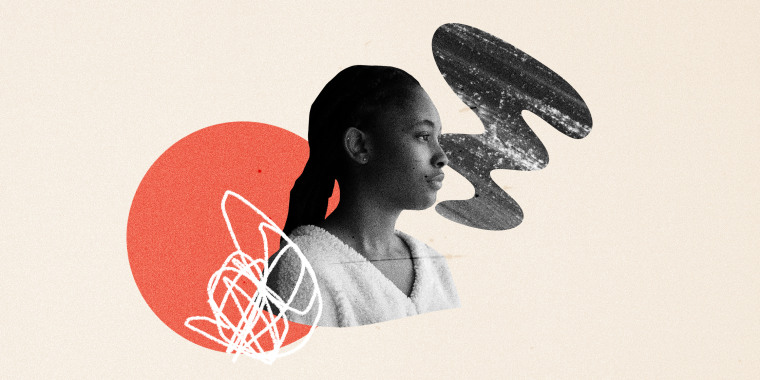Denita Parrish worked as a 911 operator for nearly eight years. While she liked helping people, it was tough. Every day she listened to callers recount trauma as she faced racism and microaggressions from co-workers. The job was daunting and overwhelming.
She started seeing a therapist to help. But when her therapist retired, she just stopped going. Finding a new therapist felt like an extra worry.
“All of the real-world things that are going on is affecting me, of course, as a Black woman,” the 38-year-old government employee who lives in Pittsburgh told TODAY. “That's a lot to deal with.”
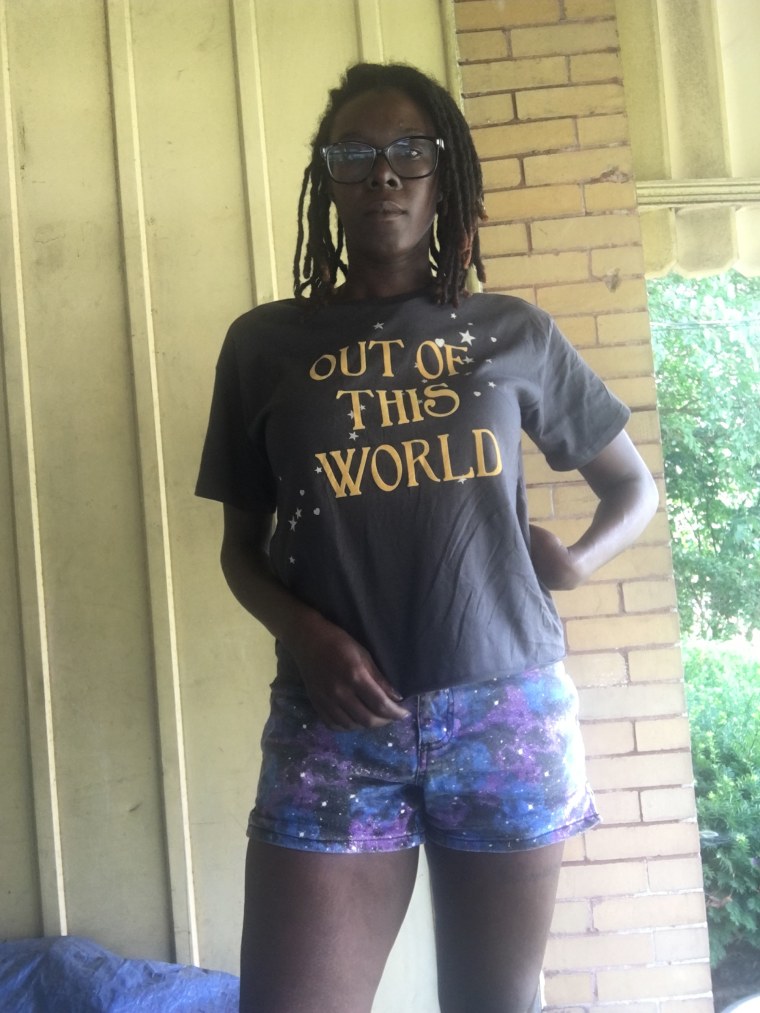
On top of feeling depressed by systemic racism she faces, Parrish’s concerns about her family adds to it. She frets about her sons, who are 10 and 6, because of police brutality, racism and other factors that put them at greater risk. And, her partner is in jail and it doesn’t seem like he will be paroled soon for his DUI conviction, even though he served his sentence, she said.
“It’s a major stressor. I have two Black boys and their father is in prison,” Parrish said. “I work very hard. I shouldn’t have to put up with this extra stuff.”
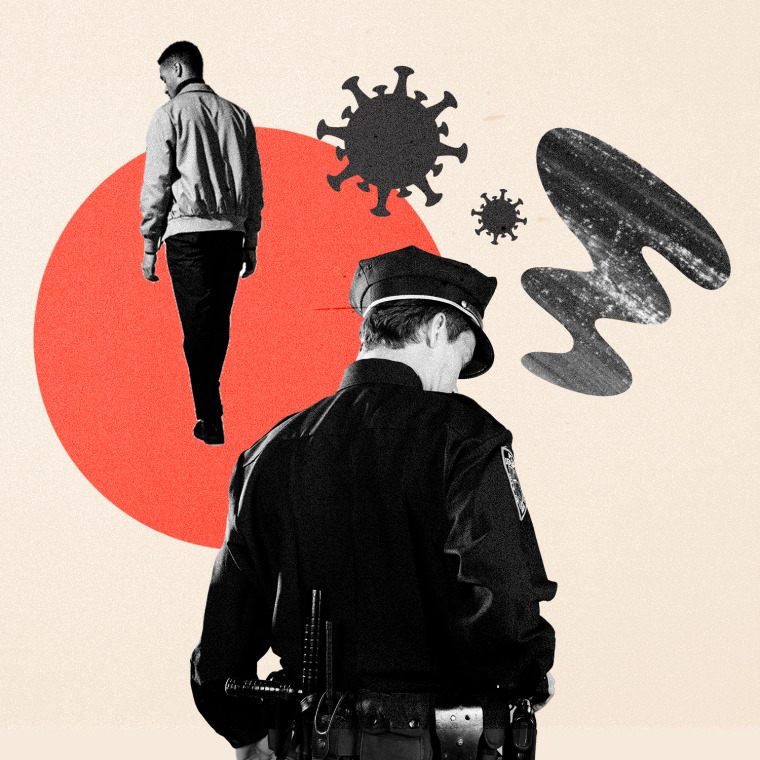
Parrish is not alone.
The Department of Health and Human Services Office of Minority Health collects some data on Black women and mental health but it isn’t entirely complete, explains Mia Moore Kirby, an assistant professor in the social work department and center of African American studies at University of Texas, Arlington. While African Americans experience mental illness at the same rate as other Americans, they're more likely to receive inadequate care or no care at all. The American Psychiatric Association estimates that one out of every three Black people who need mental health treatment actually receives it.
“There’s no specific information on how many people have diagnoses just because so many people go untreated — and this is for all groups," Kirby told TODAY.
Or put another way: “There are pieces of information. But can we speak to the experience of Black women when it comes to health and mental health issues? It's difficult to do that," said Cortney Beasley, founder of Put In Black, an online community focused on Black people and mental health, and a therapist at a start-up in San Francisco Bay area, told TODAY.
Barriers to help
Black women are often underrepresented in research and wary of seeking mental health treatment. The reasons behind both sometimes overlap.
“The mistrust that Black people feel towards our health care system ... and the stigma that comes along with mental health issues and going to therapy … it's all been designed in a way that's not really conducive to Black people getting the help they need,” Beasley said.
Medicine has a tragic history of forced experiments on Black people, including the Tuskegee Study and the case of Henrietta Lacks, when doctors took cells from Lacks without her or her family’s permission and used them for research and profited from it. Today, Black women often feel wary about participating in research. Yet, other research simply doesn’t consider Black women.
“Some researchers don't research people of color and then also there's concern associated with us volunteering for studies,” Kirby said. “It's an issue on both sides.”
There’s also a history of social workers (and therapists) recording information to be used against Black women.
Fewer than 5% of psychologists are Black. Even if everyone in the country wanted a Black therapist there wouldn’t be enough of us to go around.
Joy Harden Bradford
“I also think that some of that has to do with how social workers — which were the original mental health folks in Black communities — were introduced,” LaNail Plummer, CEO and clinical director of Onyx Therapy Group in Washington, D.C., told TODAY. “In those situations, the social worker, who was the middle person, actually gathered information and that information was later used against the client.”
In addition to structural barriers and systemic racism, many Black women struggle to find a therapist who looks like them — or is culturally competent.
“Fewer than 5% of psychologists are Black. Even if everyone in the country wanted a Black therapist there wouldn’t be enough of us to go around,” Joy Harden Bradford, a psychologist based in Atlanta, Georgia and founder of Therapy for Black Girls, told TODAY.
At 62 years old, Karen Walker is now seeing a Black therapist and she said it’s made a huge difference.
“My treatment now is much better,” the retired nurse’s aide in Pittsburgh, told TODAY. “(My therapist) can respond back to me because of her experiences, real life things that have happened to her and we can talk about it and work things out.”
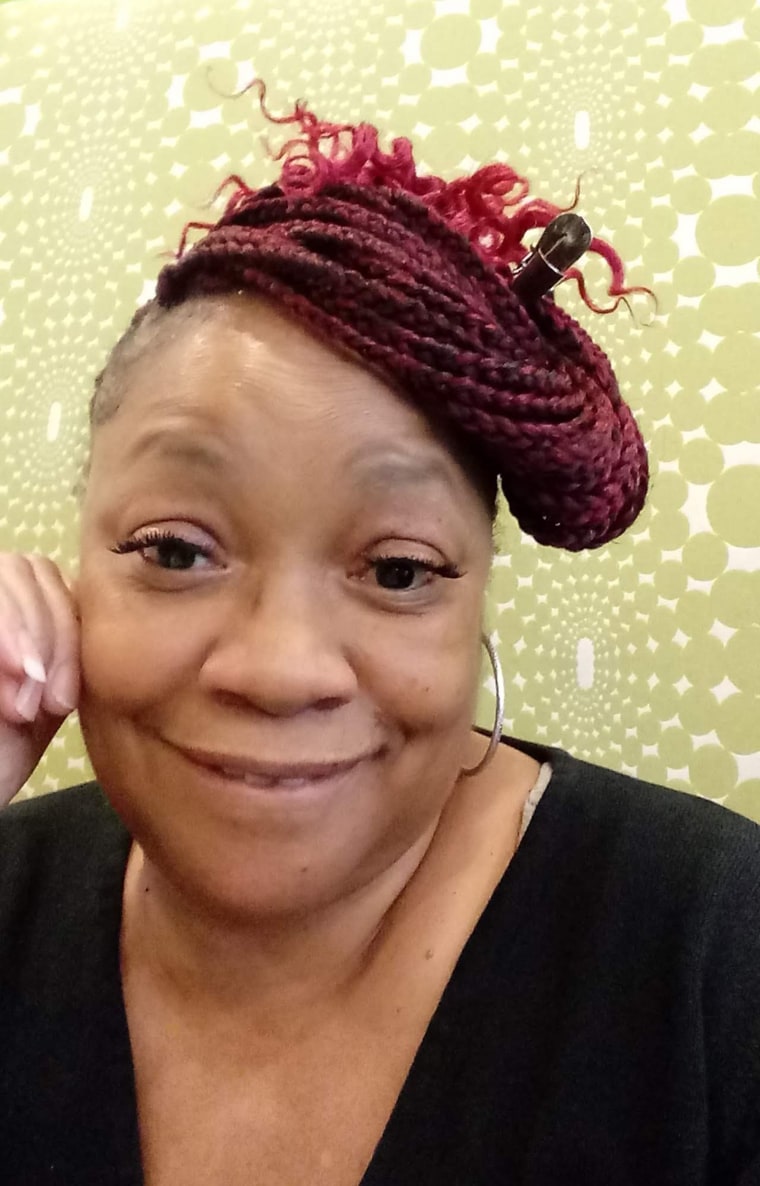
Walker feels like her therapist now has a “different approach” and makes her want to return. Sometimes when Black women ask for help they feel like they’re not getting the best care or being dismissed. Kirby studied the “strong Black woman” stereotype’s role in mental health and found that it prevents women from receiving care.
“The 'strong black woman concept' (implies that) we're able to handle all things and so sometimes clinicians — who may not be culturally competent — may also speak that language,” Kirby said. “That’s not validating a person's experience, not empathizing with what's going on and maybe minimizing their symptoms. And I think African American women in particular have symptoms minimized. We're looked at as superhuman.”
Marissa Carrington, 27, feels this pressure to be everything. She works for a grassroots organization that focuses on restorative justice practices and conflict resolution. She has two children and recently learned one of her daughters has anxiety and impulse control disorder. In addition, friends and family rely on her to help with their problems. Many days, Carrington felt overwhelmed and mad.
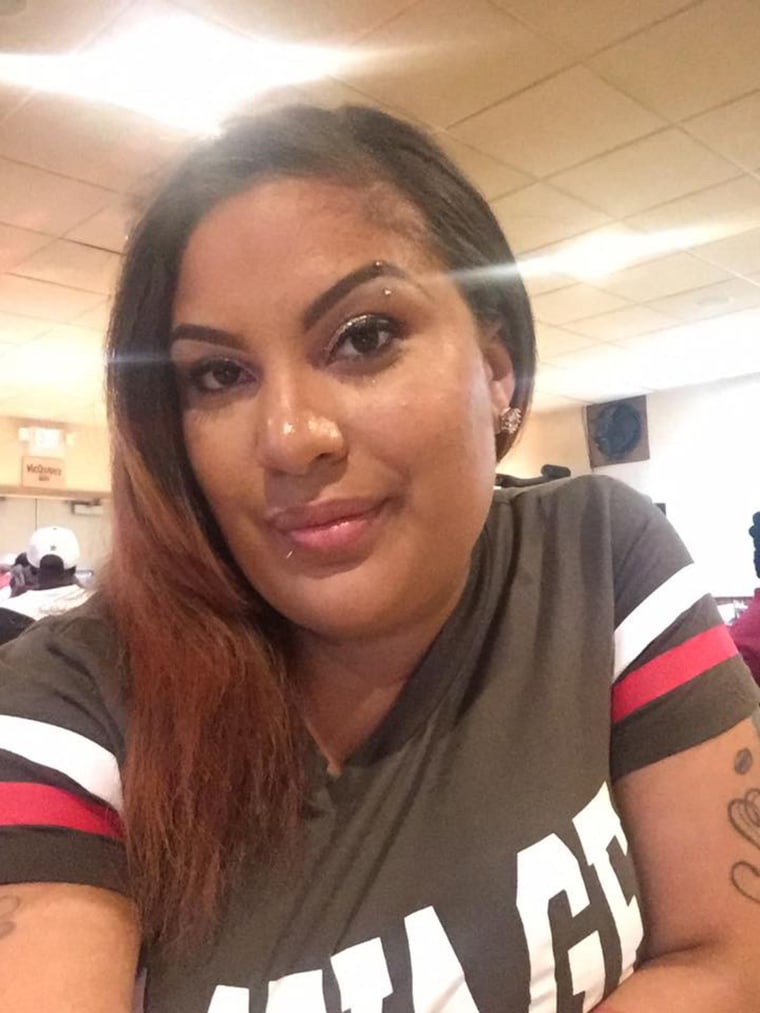
“Basically, my attitude was kind of nasty. Just the things that I have been through made me angry,” she told TODAY. "I'm just ready to be happy so I just wanted to work on myself."
Creating space for Black women’s mental health
Carrington attends a program, Beams to Bridges, offered by the Pittsburgh-based Black mental health group Steel Smiling, and feels much happier and even better able to cope with parenting stress. The one-year program teaches "Mental Health First Aid" but also destigmatizes mental health. Parrish also attends and even found a new therapist to help her grapple with parenting alone but not being a single parent. Shanell Ware, another participant, feels grateful to have joined when she did. Watching recent videos featuring police brutality has caused her to relive her traumatic experience when police officers choked her during a traffic stop in 2008.
“When it comes up, it brings up the pain,” the 36-year-old, assistant manager at a cleaning company told, TODAY. “I had never spoken out loud about it. My therapist was the first person I expressed how I felt.”
Ware realized being “bottled up with hurt and pain” made her lash out at loved ones. Since seeing her therapist and working with Steel Smiling she now knows how to manage stress better. If she feels anxious or angry, she starts singing or slowly counts in her head until it passes. And, she’s also become a mental health advocate in her community. That’s one of the goals of Beams to Bridges: To end stigma around mental health in the Black community and bolster community support.
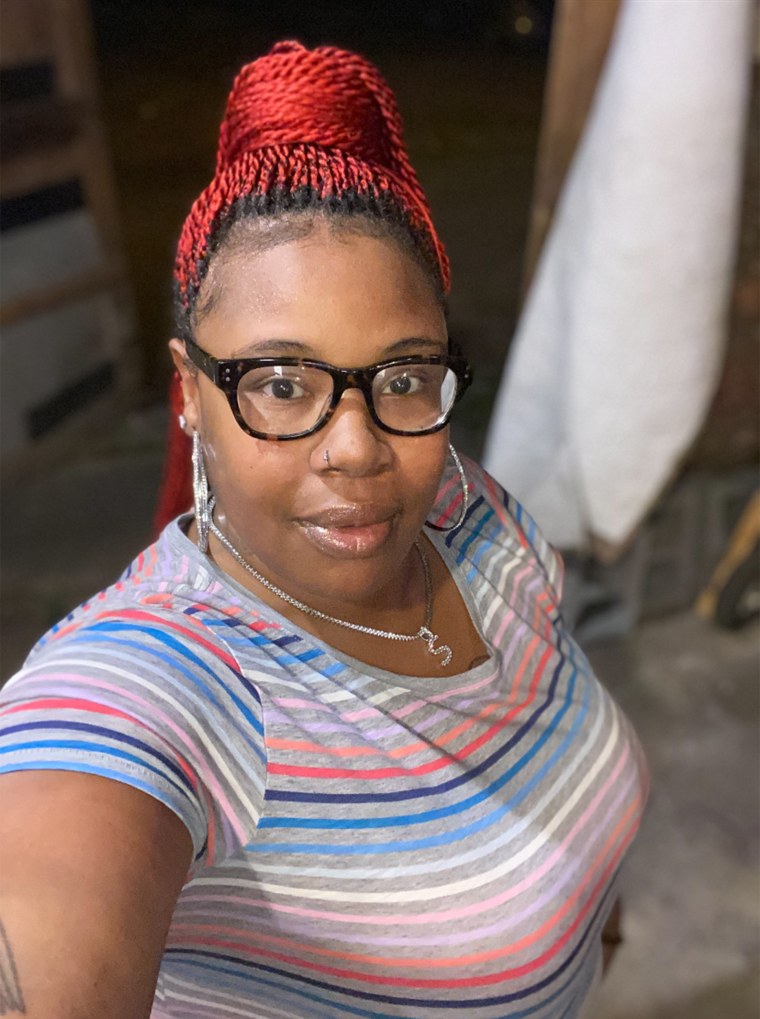
“They are making referrals and connecting their friends and families and really being mental health champions,” Julius Boatwright, CEO of Steel Smiling, told TODAY. “They are mental health support in action.”
Steel Smiling offers a Black Mental Health Fund that's available nationwide to defray treatment costs. Requests quickly came in for help.
"People do need support," Boatwright said. "What we would love to see is Black people all across the country being community mental health ... champions. And this is supporting more traditional mental health (professionals)."
Plummer says Steel Smiling, which she works with, help Black people access services they need.
“The community-based companies are doing all the legwork that needs to get done in order to bring people into counseling,” she said. “They get people relaxed so that they can come into counseling.”
Steel Smiling also introduces Black people to therapists who look like them and coaches them on interviewing therapists.
Nationally, Therapy for Black Girls provides a database of more than 1,000 providers so that Black women can find Black therapists.
“There are certain things that you can likely talk with a Black woman therapist about as another Black woman that you won't have to explain twice,” Harden Bradford explained. “There are sadly micro-aggressions that exists even in the therapy space.”
Another national organization, The Loveland Foundation, provides support to Black girls and women to attend therapy. Its therapy fund allows them four to eight therapy sessions with culturally competent providers across the country and partners with Therapy for Black Girls among others. Actress Taraji P. Henson also started the Boris L. Henson Foundation, which aims to destigmatize mental health in the African American community and provide scholarships to Black people pursuing mental health careers. It's currently raising money to offer up to five virtual therapy sessions at a lower cost for people undergoing additional stress during these unprecedented times.
Harden Bradford also hosts a podcast about mental health. Not every episode focuses on illness or trauma — some examine mental health in pop culture — but other address complex issues, such as postpartum depression, self-care after sexual assault and recovering from an abortion, to name a few. She’s learned that the podcast had an impact that she never anticipated.
“People will use episodes of the podcast as a lead in for some difficult conversations,” she said. “If you don't necessarily have the language (around mental health) it could be that you share the podcast episode and ... have a conversation.”
Black women looking for resources about mental health can check out the following:
